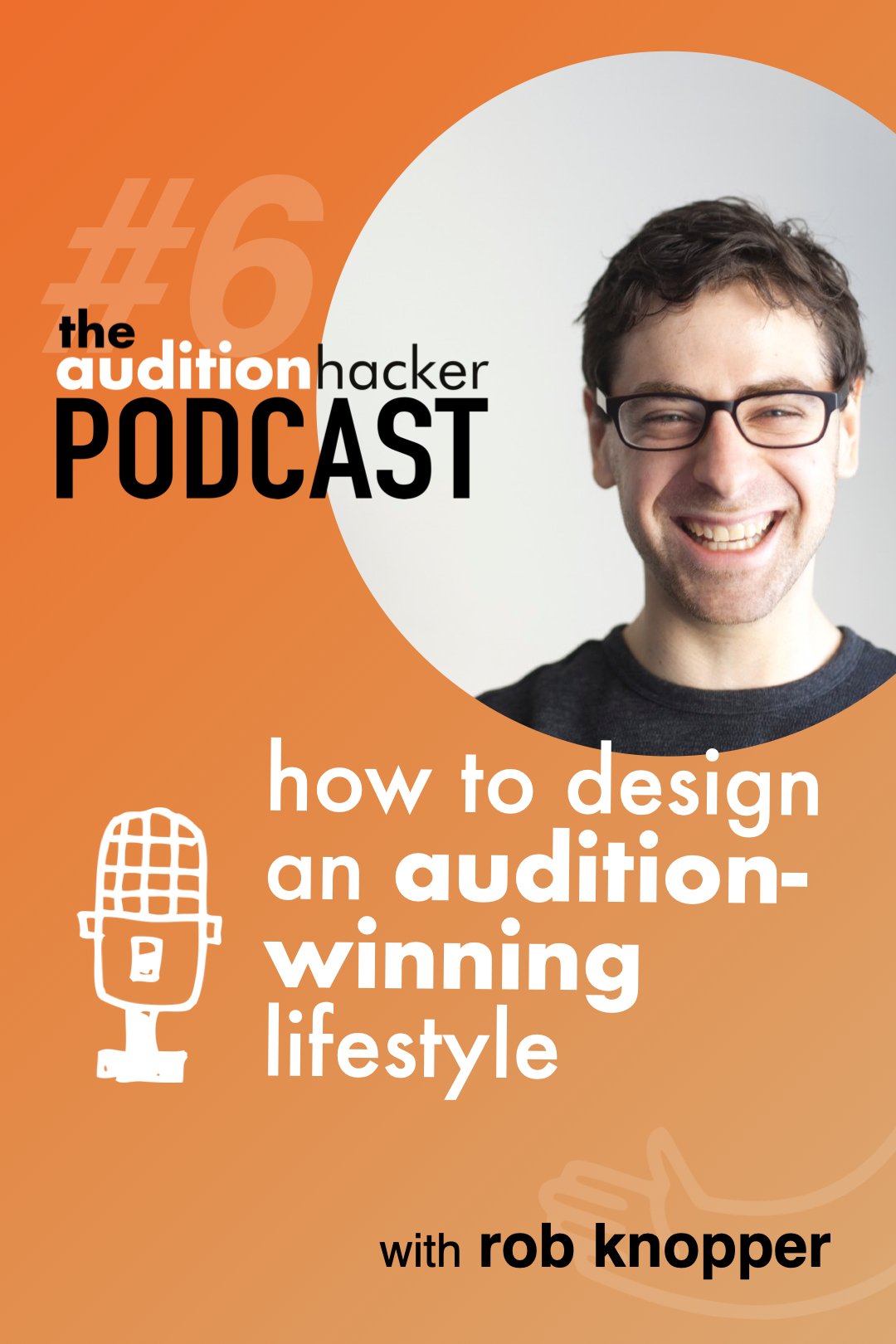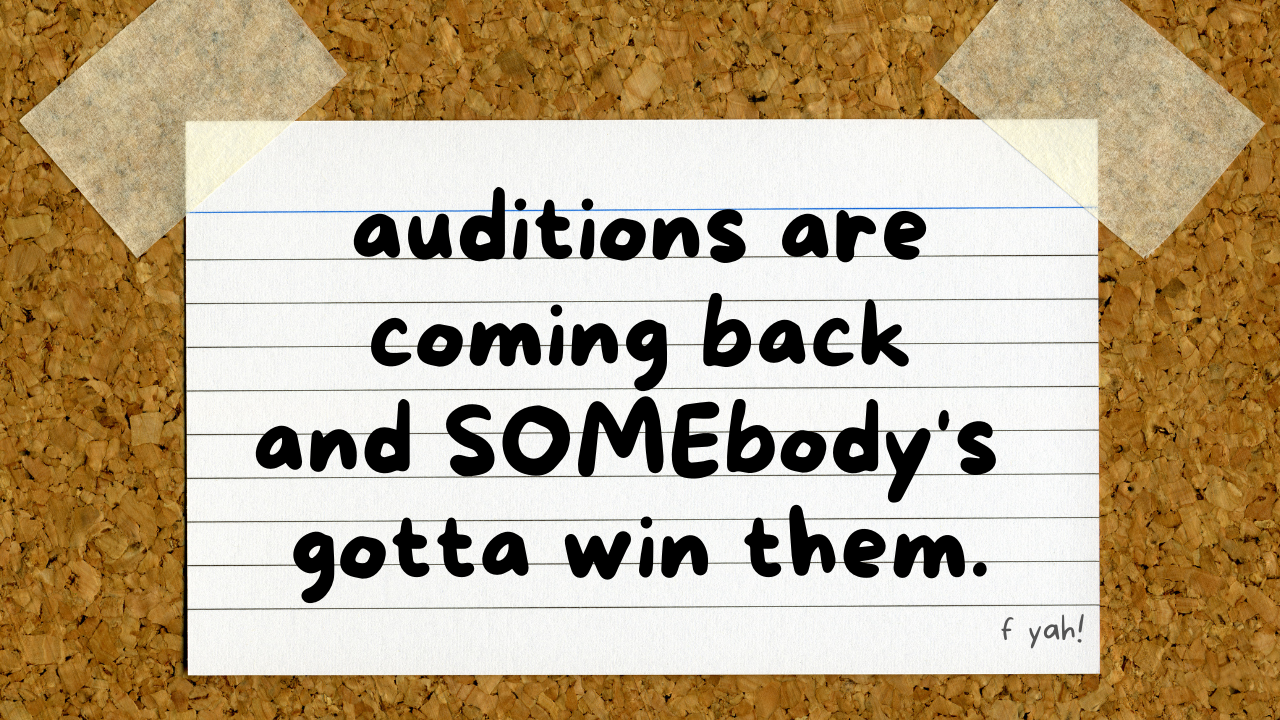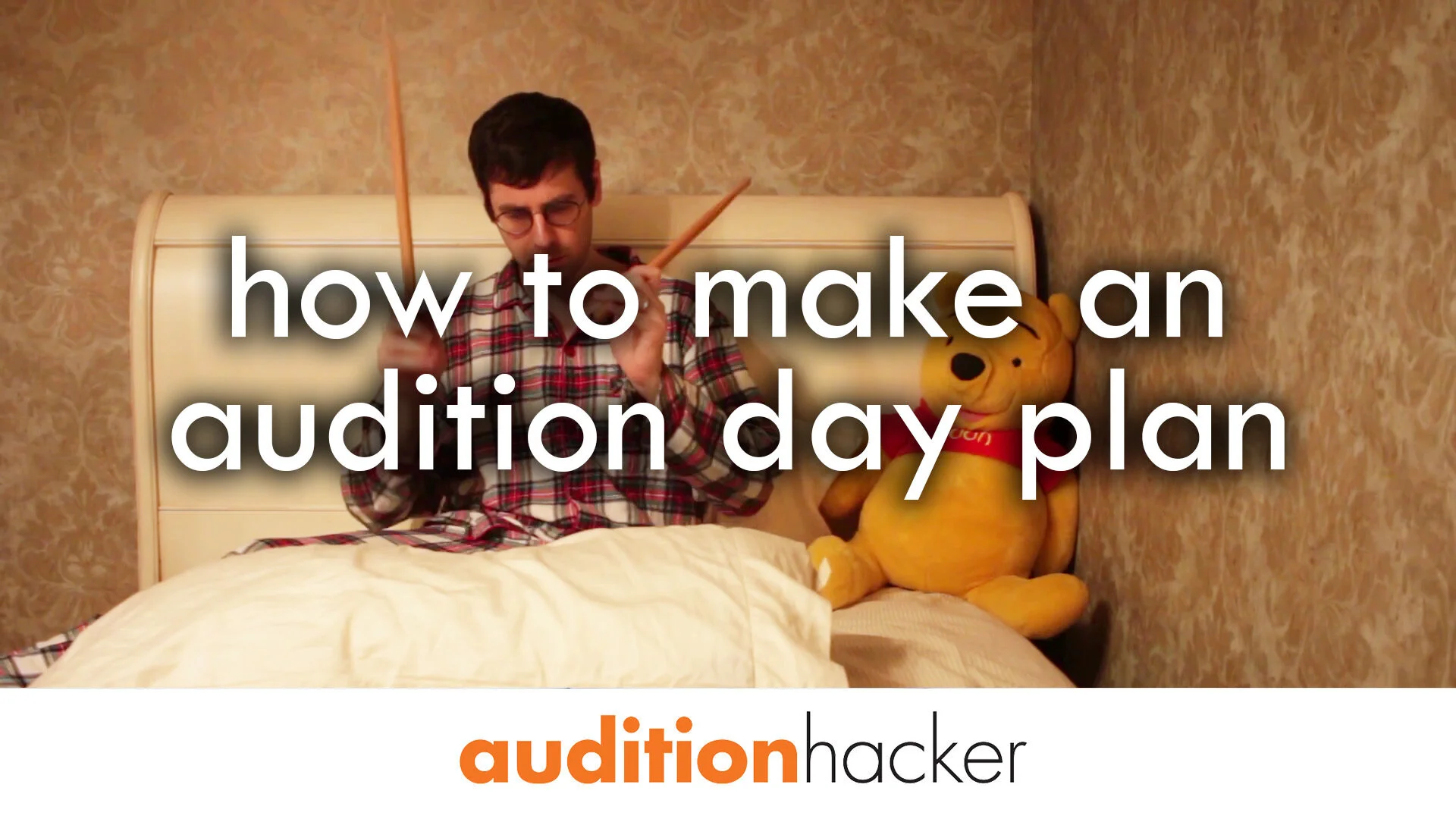what’s the biggest surprise you had on your first day of college?
how about your first day of high school?
kindergarten?
your first day sets the tone for the second day. and the third day. and the second year. and the rest of your life.
a lot of people ask me what life is like as a professional musician in the MET orchestra. they want to know what i do day to day, how i practice, how many rehearsals i have, etc.
my first day at the MET
well, just like any other first day, my first day at my job was full of new experiences. it was the day that i wanted to prove myself to the orchestra. i wanted to say, “hey, you didn’t make a mistake when you chose me at the audition. i can sound good in your orchestra, too!”
so i studied the hell out of the piece we were playing. it’s called anna bolena by donizetti, and it’s super boring. (sorry, not sorry.) but i studied recordings, i analyzed the score, and made a plan on exactly how to play every friggen cymbal crash in that piece.
i knew the note length, the tone, the tempo, and the orchestration behind every single note i was going to play that day.
want to learn how to prepare for auditions?
here's my 5-step audition preparation blueprint. it's a guide to constructing your preparation process from the day you get your list until the day of the audition.
and afterwards, i decided to get some feedback to see how i did.
so i went up to one of the brass players and introduced myself. i said, “hi! i’m rob. how do i sound today?”
he said, “good to meet you. it sounded good."
i waited to see if he had anything else to say, but he did not. i said, "ok, did you think it was too loud?"
"no, it was fine."
i was craving some feedback after my first professional orchestra rehearsal. ”what did you think about placement? was i with you guys? should i be more on top of the beat? what do you guys usually like to hear?"
“nope, sounded good to me."
……..and?
i was confused at what basically amounted to no feedback. i mean, i appreciated hearing that it sounded good, but isn’t that basically what you say to someone if you don’t really want to say anything?
and the funny thing is, it kept happening. i kept waiting for some consistent, constructive, usable feedback that i could apply to my preparation and my playing. but honestly, over the next few weeks and months it didn’t really happen. or at least it didn’t happen much.
and it was a surprise. i thought maybe i’d get some occasional feedback, and i wouldn’t have been surprised if i got daily feedback. but i definitely wasn’t expecting no feedback.
here’s why i wanted feedback so bad:
along your musical path as a student, you always get feedback. whether you just made your way through your first C major scale in 6th grade or you just did a one-on-one mock audition for michael tilson thomas, there’s always a comment session. constantly. you play, and then look up at someone to see how they think you did. and you try to do better next time.
you can say this about any industry or skill. teachers grade your tests, and you use those grades to guide your next actions. “shoot, i didn’t study well enough. ok, i better actually do the readings before the next test." it’s a perpetual loop that looks a little like this:
the normal order of events as a student
and as you start ramping up your work for auditions, this gets more intense. you rely on this feedback to support constant improvement by playing for people in mock auditions.
because for me, before auditions, i’d:
play for someone,
get comments,
analyze those comments,
choose adjustments to make,
play for someone else, and then
continue it over and over and over.
but i’d just experienced a jolting reality: the essential part of the feedback loop, the actual feedback, was gone….
what the what?!
ok, so that is a thing now. but… why?
i have 4 theories about why this happens:
don’t be mistaken. it’s not like there’s no feedback. it’s just a lot less than you’re used to in school. and after that day of confusion and the following weeks, i started to develop theories about why this was happening. read over these and let me know what you think about them in the comments.
1. the orchestra respects the audition process.
i had just passed one of the most intense job application processes on earth. i made it through all the rounds, and gotten the job. actually, that’s the biggest piece of feedback you can ever get: YES, YOU PLAYED WELL AND WE WANT YOU TO JOIN US IN OUR ORCHESTRA FOR LIFE. everything is just small potatoes after that.
2. respect.
try to follow this line of thinking for a minute. everyone plays in the way that they think sounds best, right? but… everyone sounds different. your definition of best is different than mine. there’s no single definition of “best”. if one person plays something, another person might think to themselves, “that isn’t how i would have played it.” just because they did it differently, that doesn’t mean it’s wrong. it’s not “worse” than you and it doesn’t necessarily need to be corrected. it’s their definition of what’s best, which is just different from yours or anyone else’s.
if you have respect for someone’s artistry, you might decide not to offer feedback. just by the act of giving feedback, you’re implying to someone that you think your opinion is more valuable than their opinion. (which, in some cases, is often more a reflection on the advice-giver than the advice-receiver!)
3. people are too immersed in their own parts.
they’re playing their own instrument and going through the piece from their own perspective. maybe they just don’t have the bandwidth to listen to every single little thing that you’re doing. and even if they notice one thing here or there, they might not be paying enough attention to comment on the intricacies of your performance.
4. general orchestra etiquette.
a lot of it probably boils down to the golden rule: in the long run, it probably gets annoying when random people come up to you and tell you how to play things. so you treat others how you want to be treated.
my conclusion? just roll with it.
like many things in the MET orchestra, i decided to just roll with it. this is just how it is, and i’d better get used to it.
remember? i won the audition. i'm a professional now. and in the audition, they didn’t just choose my excerpts on that day. they chose the sounds that i make, the technical skills that i bring, and they chose my decision-making instincts. everything comes with it.
i decided to start thinking of playing music in a new way: i’m my own musical boss. i earned the position and it’s my job to decide what sounds good and make executive decisions on how to play things. i'm not trying to shape and adjust to what other people think anymore. that’s a hard conclusion to accept, coming from being a student.
remember the feedback loop? you play something the best way you can, you get feedback, and then you try it again. well, now i have a job, and the way i instinctively play things must now good enough for the big leagues. that’s why i did all that work, i suppose. so i told myself, "it’s time to trust yourself, because you’ve arrived."
looking for a breakthrough in auditions?
here's my 5-step guide to constructing your preparation process and optimizing it for maximum results.
















it's episode #8 of the auditionhacker podcast, and i'll go over my best methods for getting better feedback.